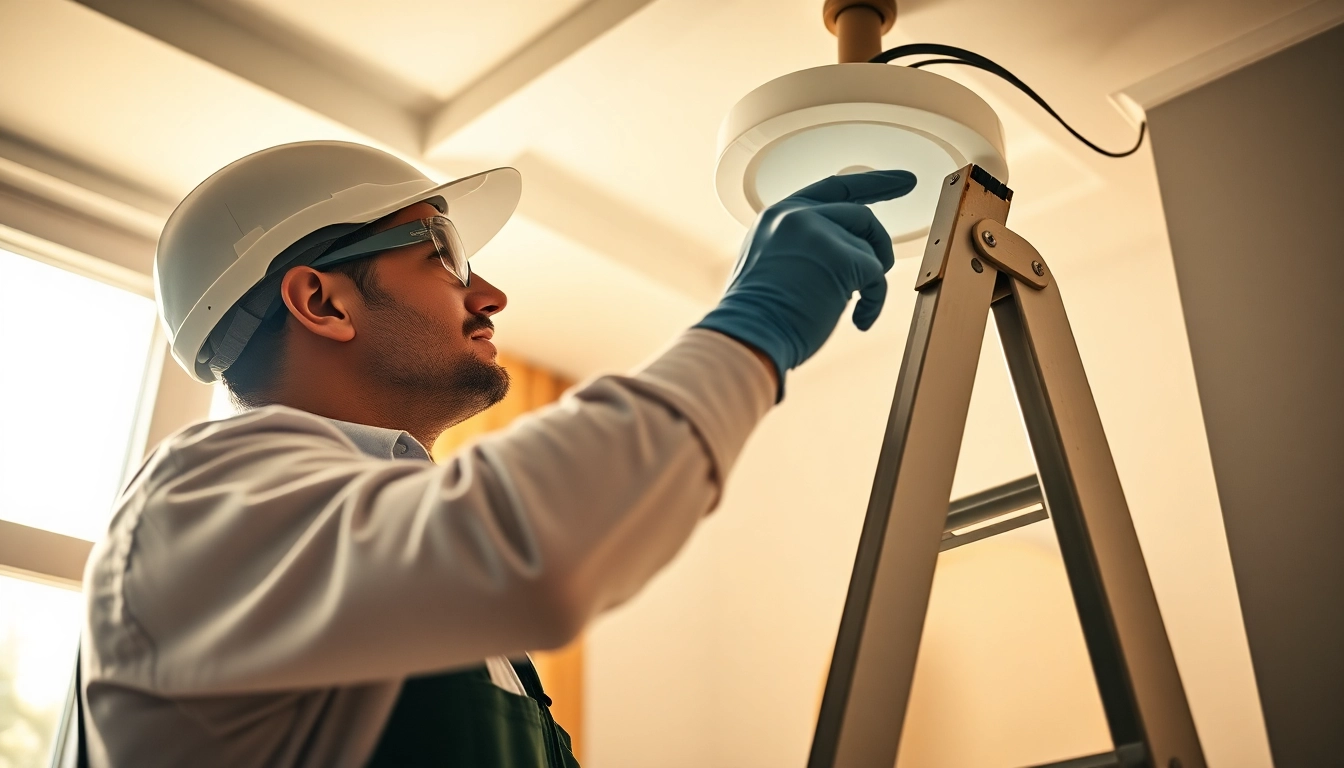Understanding the Role of an Electrical Contractor
An Electrical Contractor plays a crucial role in both residential and commercial construction projects, handling the installation, maintenance, and repair of electrical systems. Their expertise is not only limited to wiring but extends to ensuring that all electrical work complies with safety standards and building regulations. In a world increasingly dependent on electricity for seamless functionality, the importance of competent electrical contractors cannot be overstated.
What is an Electrical Contractor?
An electrical contractor is an individual or firm that undertakes electrical work, often involving a range of services from installations to repairs. They are usually classified into two main categories: licensed electrical contractors, who hold state or local licenses permitting them to operate legally, and unlicensed contractors, who may not have the necessary qualifications or insurance coverage.
Types of Electrical Contractors
Electrical contractors come in various forms, each specializing in distinct aspects of electrical work:
- Residential Contractors: Focused on electrical work in homes, including installations, repairs, and upgrades.
- Commercial Contractors: Specialize in larger projects such as office buildings, shopping centers, and factories, often employing extensive wiring systems and specialized electrical solutions.
- Industrial Contractors: Work within factories or manufacturing plants, dealing with heavy machinery, complex control systems, and high-voltage power requirements.
- Specialty Contractors: Handle specific types of electrical tasks, such as telecommunication work, solar panel installation, or electrical data systems.
Importance of Hiring a Licensed Electrical Contractor
Hiring a licensed electrical contractor is essential for ensuring the safety and quality of electrical work. A licensed contractor has undergone proper training and understands local building codes and regulations. They are also likely to be insured, which protects both them and the homeowner in the event of accidents. Furthermore, licensed contractors offer warranties on their work, providing peace of mind for clients.
Key Factors to Consider When Hiring an Electrical Contractor
Experience and Qualifications
When selecting an electrical contractor, it is vital to consider their experience and qualifications. Look for contractors who have been in business for several years and possess the necessary credentials. A well-established contractor is likely to have handled a variety of projects and can provide references, showcasing their reliability and expertise.
Services Offered by Electrical Contractors
Different electrical contractors offer varying services based on their specialization. Some common services include:
- Installation of lighting fixtures and ceiling fans.
- Wiring for new constructions and remodels.
- Upgrading electrical panels and services.
- Installation of electrical outlets and switches.
- Residential and commercial electrical maintenance and repair.
- Emergency electrical services.
Client Reviews and Testimonials
One of the most effective ways to gauge the quality of an electrical contractor is by examining client reviews and testimonials. Online platforms like Yelp and the Better Business Bureau provide transparency about contractor performance. Positive feedback from past clients can indicate a contractor’s reliability and professionalism, whereas numerous complaints may be a red flag.
Common Electrical Projects Handled by Contractors
Residential Installations and Repairs
In residential settings, electrical contractors often tackle projects such as wiring new homes, retrofitting older homes to meet modern standards, and repairing faulty wiring. Common installations may include lighting fixtures, electrical panels, and major appliances. Electricians also ensure that homes comply with safety standards to prevent electrical hazards.
Commercial Electrical Services
Commercial projects can be considerably more complex due to the higher scale and load requirements. Electrical contractors working in commercial environments may handle installations for HVAC systems, comprehensive lighting solutions, data and telecommunications systems, and emergency power systems. Ensuring minimal interruption to business operations is a critical focus during these projects.
Emergency Electrical Repairs
Electrical emergencies can occur unexpectedly, ranging from power outages to equipment failures. Many electrical contractors offer 24/7 emergency services to address urgent issues, minimizing risks such as electrical fires and safety hazards. Quick response time, efficiency, and expertise in diagnosing electrical faults are vital attributes for contractors in these situations.
Cost Factors Involved in Hiring an Electrical Contractor
Estimating Project Costs
The cost of hiring an electrical contractor varies based on several factors such as the scope of the project, labor rates, and geographical location. Obtaining estimates from multiple contractors can help clients make informed decisions about their electrical needs. Factors that typically impact pricing include:
- Type of project (residential vs. commercial).
- Complexity and duration of the work.
- Availability and cost of materials.
- Geographical cost of living and local demand for electrical services.
Understanding Quotes and Proposals
When receiving quotes, it’s essential to analyze the details provided. Look for transparency in pricing, including labor, materials, and any additional fees. A well-detailed proposal will typically outline the scope of the work, timelines, and payment terms. It’s advisable to clarify any ambiguities before signing a contract to ensure understanding and agreement on all aspects.
Tips for Budgeting Your Electrical Project
Budgeting effectively for an electrical project involves careful planning and consideration of potential overruns. Here are some tips to help manage your costs:
- Create a list of your electrical needs and prioritize them.
- Allow a buffer in your budget for unforeseen issues.
- Consider energy-efficient upgrades that can reduce long-term costs.
- Consult with your contractor about cost-saving measures and alternatives.
Best Practices for Working with Your Electrical Contractor
Establishing Clear Communication
Clear communication with your electrical contractor lays the foundation for a successful project. Ensure that you outline your expectations, timelines, and budget from the beginning. Regular updates and discussions about progress can also prevent misunderstandings and help address any issues before they escalate.
Setting Project Timelines
Establishing a realistic timeline for your electrical project is critical. Work with your contractor to define key milestones and completion dates. This practice not only helps keep the project on track but also allows you to plan any related tasks, such as interior design or landscaping, around the electrical work.
Ensuring Safety and Compliance
Safety should always be a priority on any electrical project. Ensure that your contractor follows proper protocols and local building codes. Regularly monitor compliance with safety standards throughout the project, conducting inspections when necessary to ensure that everything is up to code.















Leave a Reply